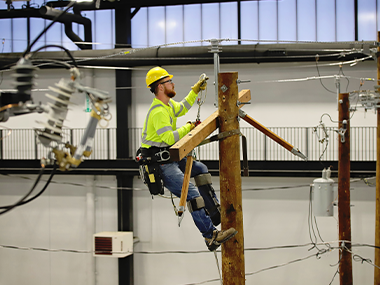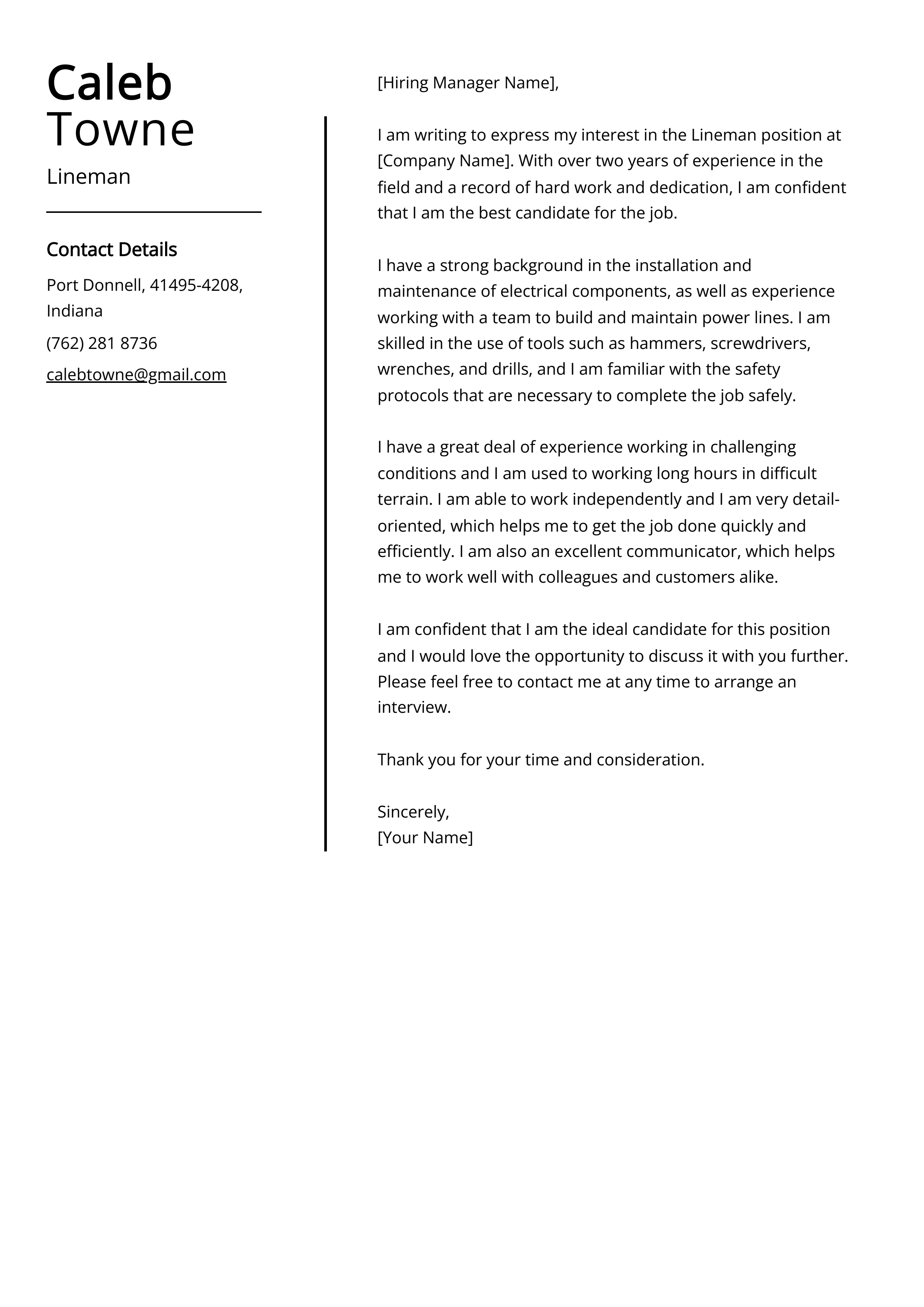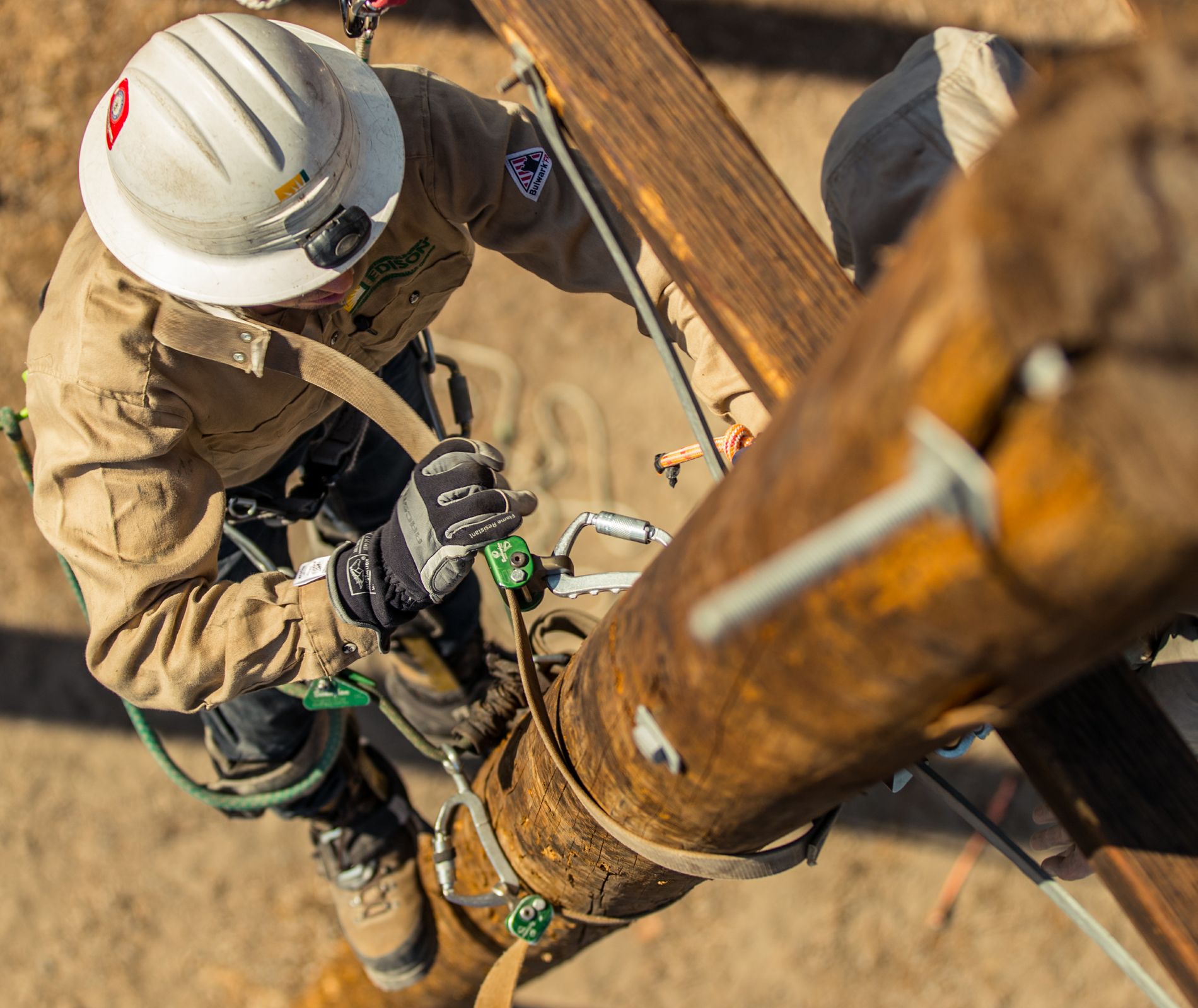To become a lineman with no experience, enroll in a lineman training program and obtain a commercial driver’s license (CDL). Apply for apprenticeships to gain hands-on experience.
Pursuing a career as a lineman can be rewarding and challenging. Start by enrolling in a reputable lineman training program. These programs provide essential skills and knowledge about electrical systems, safety protocols, and equipment handling. Obtaining a commercial driver’s license (CDL) is crucial, as it allows you to drive utility vehicles.
Next, seek out apprenticeships with utility companies or contractors. Apprenticeships offer practical, hands-on training under the supervision of experienced linemen. This on-the-job experience is invaluable and often required for certification. Dedication, safety awareness, and a willingness to learn are key to succeeding in this demanding field.
Introduction To Lineman Career
Becoming a lineman is a rewarding and challenging career. Linemen work on power lines and ensure electricity flows to homes and businesses. This role is essential for maintaining our modern way of life.
What Does A Lineman Do?
Linemen install, maintain, and repair electrical power systems. They work on power lines, transformers, and other equipment. Their tasks include:
- Climbing poles and towers
- Stringing and maintaining power lines
- Inspecting and testing equipment
- Repairing electrical issues
- Following safety protocols
Linemen use various tools and equipment. They often work in all weather conditions. The job requires physical strength and stamina.
Importance Of Linemen
Linemen are crucial for our daily lives. Without them, we would not have reliable electricity. They keep the power grid running smoothly.
Linemen help restore power after storms and natural disasters. They ensure our homes, schools, and hospitals stay powered. Their work keeps businesses operational and communities safe.
Linemen also play a role in expanding the power grid. They connect new areas to the electricity network. This helps support growth and development in our towns and cities.
| Task | Description |
|---|---|
| Installation | Setting up new power lines and equipment |
| Maintenance | Inspecting and repairing existing systems |
| Safety | Following protocols to prevent accidents |
In summary, linemen are essential for a functional society. They ensure the continuous delivery of electrical power.

Credit: www.midamericanenergy.com
Basic Requirements
Becoming a lineman with no experience starts with understanding the basic requirements. These requirements ensure you are ready for the demands of the job. Below, we will explore the key requirements you need to meet.
Age And Education
To become a lineman, you must be at least 18 years old. This age requirement is standard across the industry. You also need a high school diploma or a GED. This education ensures you have basic math and reading skills.
Some employers prefer candidates with technical school training. Courses in electrical systems can be very helpful. Check if your local community college offers relevant programs.
Physical Fitness
Physical fitness is crucial for linemen. The job involves climbing poles and working at heights. You need to be in good physical shape. Regular exercise can help you prepare. Focus on strength training and cardio exercises.
- Strength: You will lift heavy equipment.
- Endurance: You may work long hours.
- Flexibility: This helps with climbing and reaching.
Employers may require a physical fitness test. This ensures you can handle the job’s physical demands. Consider joining a gym or a fitness program to stay in shape.
`, `
Essential Skills
Becoming a lineman with no experience is challenging but achievable. You need a mix of technical and soft skills. These skills will help you perform your job safely and efficiently.
Technical Skills
Technical skills are the backbone of a lineman’s job. They involve knowing how to handle tools and equipment. Here are some key technical skills you should focus on:
- Electrical Knowledge: Understand basic electrical principles and safety measures.
- Tool Handling: Learn to use pliers, wire cutters, and other lineman tools.
- Climbing Skills: Be comfortable climbing poles and towers using safety gear.
- Reading Blueprints: Ability to read and understand electrical plans and diagrams.
Soft Skills
Soft skills are just as important as technical skills. They help you work well with others and handle job stress. Here are some essential soft skills:
- Communication: Clearly explain issues and solutions to your team.
- Teamwork: Work well with other linemen and supervisors.
- Problem-Solving: Quickly find solutions to unexpected problems.
- Physical Fitness: Stay fit to handle the physical demands of the job.
Training Programs
Becoming a lineman with no experience requires proper training. Training programs are essential for mastering the skills needed. This section covers two main training paths: Apprenticeship Programs and Vocational Schools.
Apprenticeship Programs
Apprenticeship programs offer hands-on experience. These programs combine classroom instruction with on-the-job training. You work under the guidance of experienced linemen. Most programs last about 4 years.
Apprenticeships are often paid. This means you earn while you learn. Many utility companies offer these programs. Some unions also provide apprenticeship opportunities.
| Program Duration | Approximately 4 years |
|---|---|
| Key Benefits | Hands-on experience, Paid training |
| Providers | Utility companies, Unions |
Vocational Schools
Vocational schools offer specialized lineman training. These schools provide a mix of classroom and practical training. Courses cover essential skills like climbing poles and electrical theory.
Programs at vocational schools are shorter. They typically last from a few months to a year. Graduates often find jobs quickly due to high demand.
- Shorter duration: Few months to a year
- Comprehensive training: Theory and hands-on practice
- High job placement rates
Both apprenticeship programs and vocational schools are excellent paths. Choose the one that fits your schedule and needs best.
Certifications And Licenses
Becoming a lineman with no experience requires dedication and the right qualifications. Certifications and licenses are essential for ensuring safety and proficiency in this field. This section will guide you through the necessary certifications and how to obtain licenses.
Necessary Certifications
To start, you need specific certifications. These validate your skills and knowledge. Here are the essential certifications for aspiring linemen:
- OSHA 10-Hour Certification: This covers basic safety protocols.
- First Aid/CPR Certification: This is crucial for emergency situations.
- Climbing Certification: This shows you can safely climb poles and towers.
- Electrical Lineworker Certification: Offered by technical schools, this is vital.
How To Obtain Licenses
Licenses are mandatory for practicing as a lineman. Here’s a step-by-step guide:
- Research State Requirements: Check the specific licensing requirements in your state.
- Complete a Training Program: Enroll in an accredited lineman training program.
- Pass the Licensing Exam: Study and pass the state licensing exam for linemen.
- Apply for the License: Submit your application with the necessary documents.
| Certification | Duration | Provider |
|---|---|---|
| OSHA 10-Hour Certification | 10 Hours | OSHA Training Institute |
| First Aid/CPR Certification | 6-8 Hours | American Red Cross |
| Climbing Certification | Varies | Technical Schools |
| Electrical Lineworker Certification | 6-12 Months | Community Colleges |
Both certifications and licenses are crucial for a lineman’s career. They ensure safety, legality, and competence in the field. Achieving these qualifications opens doors to many opportunities.
Gaining Experience
Embarking on a career as a lineman without prior experience can be challenging. However, gaining relevant experience is key to breaking into this field. This section will guide you through various ways to gain experience.
Entry-level Positions
Starting at an entry-level position is a great way to gain experience. Many companies offer roles such as:
- Groundman
- Apprentice Lineman
- Utility Worker
These positions allow you to learn the basics and work under experienced linemen. This hands-on experience is invaluable for building your skills.
Volunteering Opportunities
Volunteering can also help you gain relevant experience. Consider volunteering for:
- Local community projects
- Non-profit organizations
- Emergency response teams
These opportunities often involve working with electrical systems or infrastructure. They can provide practical experience and enhance your resume.
Job Search Strategies
Starting a career as a lineman with no experience can be challenging. Effective job search strategies can help you find opportunities faster. Use these techniques to increase your chances of landing a job as a lineman.
Networking Tips
Networking is essential for job seekers. Connecting with the right people can open doors. Here are some tips:
- Join industry groups: Find lineman-related groups on social media platforms.
- Attend job fairs: Meet recruiters and company representatives in person.
- Leverage family and friends: Ask them if they know anyone in the industry.
- Volunteer: Offer to help at events or projects to gain experience.
- Use LinkedIn: Connect with professionals and join relevant groups.
Building a network can help you learn about job openings before they are advertised.
Resume And Interview Preparation
A strong resume and interview skills are crucial. Follow these steps:
| Step | Action |
|---|---|
| 1 | Highlight relevant skills: Mention any technical skills or physical fitness. |
| 2 | Include certifications: List any related certifications, even if they are basic. |
| 3 | Tailor your resume: Customize it for each job application. |
| 4 | Practice interviews: Conduct mock interviews with friends or mentors. |
| 5 | Prepare questions: Have questions ready for the interviewer. |
Reviewing these steps can boost your confidence and improve your job search success.

Credit: resumaker.ai
Career Advancement
Starting as a lineman with no experience can be challenging. Yet, the field offers many paths to grow your career. Opportunities for advancement are plentiful and rewarding.
Continuing Education
Continuing education is crucial for linemen. It helps to stay updated with the latest industry standards. Many organizations offer courses and certifications. These can enhance your skills and knowledge.
- Online Courses: Accessible and flexible for working professionals.
- Workshops: Hands-on experience to tackle real-world problems.
- Certifications: Boost your credentials and increase job prospects.
Specialization Options
Specializing can set you apart in the lineman field. Specializations offer focused knowledge and better job opportunities.
| Specialization | Description |
|---|---|
| Transmission Lineman | Works on high-voltage power lines. |
| Distribution Lineman | Handles lower voltage lines in urban and rural areas. |
| Substation Technician | Manages electrical substations and equipment. |
Choosing a specialization can lead to higher salaries. It also opens doors to more advanced roles.
Safety Considerations
Embarking on a career as a lineman requires a strong focus on safety considerations. Linemen face unique hazards daily. Understanding and adhering to safety protocols is crucial. This section will cover essential aspects of safety, ensuring you stay protected on the job.
Workplace Safety
Workplace safety is critical for linemen. Being aware of your surroundings can prevent accidents. Always inspect the area before starting any task. Look for potential hazards like loose wires or unstable structures. Clear communication with your team is vital. Use hand signals and radios to stay in touch.
- Inspect the work area
- Identify potential hazards
- Communicate with team members
Follow strict guidelines for handling tools and equipment. Proper maintenance of tools ensures they function correctly. Faulty equipment can lead to serious injuries. Always use tools designed for the job at hand.
- Maintain tools regularly
- Use equipment as intended
- Report faulty tools immediately
Personal Protective Equipment
Personal protective equipment (PPE) is a lineman’s first line of defense. Wearing the right gear can save your life. Linemen should wear helmets, gloves, and protective clothing. Insulated gloves protect against electrical shocks. Helmets shield your head from falling objects.
| Equipment | Purpose |
|---|---|
| Helmet | Protects head from impacts |
| Insulated Gloves | Guards against electrical shocks |
| Protective Clothing | Shields body from cuts and burns |
Regularly inspect your PPE for wear and tear. Replace any damaged items immediately. Proper fit is also essential. Ill-fitting equipment can be just as dangerous as not wearing any at all.
- Inspect PPE regularly
- Replace damaged items
- Ensure proper fit

Credit: energized.edison.com
Frequently Asked Questions
Is 30 Too Old To Be A Lineman?
No, 30 is not too old to be a lineman. Many start later and succeed. Physical fitness is key.
How Long Is Lineman School In Texas?
Lineman school in Texas typically lasts about 15 weeks. Programs may vary slightly in duration.
What Is Hard About Being A Lineman?
Being a lineman is tough due to hazardous conditions, heavy lifting, and long hours. Weather challenges add extra risks.
What Is The Best School To Become A Lineman?
The best school to become a lineman is Northwest Lineman College. It offers comprehensive training programs. Their hands-on approach prepares students for real-world challenges. Other top schools include Southeast Lineman Training Center and Electrical Training Alliance. Consider factors like location, program length, and cost when choosing.
Conclusion
Becoming a lineman with no experience is achievable with the right steps. Focus on education, training, and networking. Stay persistent and committed to your goals. With dedication, you can build a successful career as a lineman. Start your journey today and take the first step towards a rewarding future in this field.


